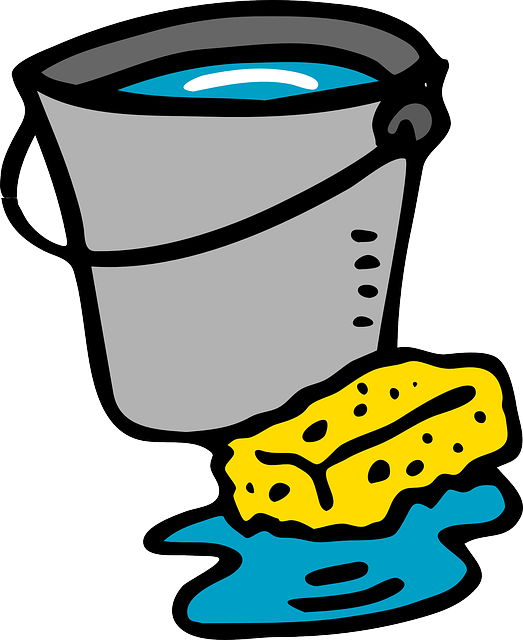Adopting an eco-friendly approach to kitchen floor cleaning involves using natural products like white vinegar, baking soda, and lemon juice, which reduce environmental pollution and health risks associated with harsh chemicals. These solutions not only ensure clean floors but also improve air quality, making your home healthier. Natural cleaners are safe for sensitive skin and respiratory systems, especially in households with children or pets, and promote a greener lifestyle due to their biodegradable properties. By using these natural ingredients, you can create effective, affordable, and versatile cleaning agents that outperform harsh chemicals without leaving toxic residues. Regular daily sweeping or vacuuming, combined with weekly deep cleaning using simple DIY recipes, keeps your kitchen floor clean, hygienic, sustainable, and aesthetically pleasing while extending flooring life and saving money.
Looking for an eco-friendly way to keep your kitchen floor clean? Discover the benefits of natural cleaning products and explore effective, sustainable solutions. This comprehensive guide covers everything from understanding the basics of green cleaning to crafting DIY recipes. Learn about powerful yet gentle ingredients, step-by-step cleaning methods, and tips for tackling common kitchen floor issues. Embrace a cleaner, greener home with our expert advice on eco-friendly kitchen floor care.
Understanding Eco-Friendly Cleaning: The Basics

Eco-friendly kitchen floor cleaning is more than just using natural products; it’s about adopting a sustainable approach to maintaining your space. It involves understanding the impact of common cleaning practices and making conscious choices to reduce environmental harm. Traditional cleaning methods often rely on harsh chemicals that can not only be harmful to human health but also contribute to water pollution when disposed of improperly.
By opting for eco-friendly solutions, you minimize these risks. Simple alternatives like white vinegar, baking soda, and lemon juice are powerful cleaning agents that effectively cut through grease and grime without leaving behind toxic residues. These natural options not only ensure a clean kitchen floor but also promote better air quality, making your home healthier and more pleasant.
Benefits of Natural Floor Cleaning Products

Natural floor cleaning products offer a multitude of benefits for your kitchen, beyond just avoiding harsh chemicals. Firstly, they are gentle on both your skin and respiratory system, making them safer to use around food preparation areas. This is especially important in households with children or pets who may come into contact with the cleaning solutions. Secondly, natural ingredients are biodegradable, reducing their impact on the environment and contributing to a greener lifestyle. By opting for eco-friendly options, you’re not only promoting better health but also supporting sustainable practices that benefit the planet.
Moreover, these products are often as effective, if not more so, than conventional cleaning agents. Many natural floor cleaners contain powerful yet gentle ingredients like essential oils and plant extracts, which can effectively remove dirt, grease, and grime without leaving behind toxic residues. This ensures a clean and fresh kitchen environment while fostering a healthier lifestyle for all occupants.
Effective Ingredients for Kitchen Floor Cleaning

When it comes to eco-friendly kitchen floor cleaning, the right ingredients are key. Natural, non-toxic cleaners are both safe for your family and better for the environment. Some effective ingredients include baking soda, a natural deodorizer and scrubber, and white vinegar, which cuts through grease and grime effectively. These simple, affordable options can tackle tough stains and leave your kitchen floors sparkling without resorting to harsh chemicals.
Combining these ingredients in the right proportions creates powerful cleaning solutions. For example, mixing equal parts baking soda and white vinegar results in a versatile cleaner that can handle various tasks, from mopping hard surfaces to degreasing sinks. Additionally, essential oils like lemon or tea tree oil add a refreshing scent without harsh fumes, making kitchen floor cleaning a more pleasant experience.
Step-by-Step Guide to Green Floor Cleaning

Looking for an eco-friendly way to keep your kitchen floors clean? Here’s a simple, step-by-step guide tailored for green cleaning enthusiasts. Start by gathering non-toxic, natural cleaning supplies like white vinegar, baking soda, and a microfiber mop or sponge. Combine equal parts vinegar and water in a spray bottle – this mixture is versatile and cuts through grease effectively. For tough stains, add a teaspoon of baking soda to the solution. Spray your kitchen floor and let it sit for a few minutes, then scrub gently with your mop or sponge. Rinse thoroughly with clean water and dry with a microfiber cloth. This method not only keeps your floors sparkling but also eliminates harmful chemicals, promoting a healthier home environment.
Don’t forget the power of regular maintenance. Sweep or vacuum your kitchen floor daily to prevent dirt buildup. For deeper cleaning, repeat this process weekly. By incorporating these eco-friendly practices into your routine, you’re contributing to a cleaner, greener space – one step at a time.
Common Kitchen Floor Issues and Solutions

Common Kitchen Floor Issues often arise from high traffic areas, frequent spills, and exposure to various substances like oil, grease, and dirt. These can range from simple daily wear and tear to more persistent stains and odors. One of the primary challenges is maintaining a hygienic environment while minimizing the use of harsh chemicals, which can be detrimental to both health and the ecosystem.
Fortunately, eco-friendly kitchen floor cleaning offers effective solutions. Natural cleaning agents like baking soda, vinegar, and essential oils are powerful alternatives to conventional products. They not only clean thoroughly but also leave a fresh aroma without harmful residues. For tackling stains, using warm water and mild soap or specialized natural floor cleaners can make short work of them. Regular mopping and sweeping help remove dirt and debris, while sealing the floor with appropriate coatings ensures longevity and enhances its natural beauty, contributing to an overall healthier and more sustainable kitchen environment.
Tips for Maintaining a Clean and Sustainable Kitchen Floor

Keeping your kitchen floor clean and eco-friendly is not just beneficial for the environment but also for your health. Start by adopting simple habits like sweeping or vacuuming regularly to remove dirt, dust, and debris. This prevents buildup and makes deep cleaning easier. Use microfiber cloths or mops instead of chemical-laden cleaners; these are effective in picking up grime without harsh chemicals. Opting for natural, non-toxic cleaners is not only safer but also reduces your carbon footprint.
For a thorough clean, create a solution of baking soda, vinegar, and water. This mixture cuts through grease and grime effectively while being gentle on the floor and safe for septic systems. Avoid using abrasive materials or harsh chemicals that can scratch or damage your kitchen floor over time. Regular cleaning not only maintains the aesthetics but also extends the life of your flooring, saving you money in the long run.
Exploring DIY Eco-Friendly Floor Cleaning Recipes

Cleaning your kitchen floor doesn’t have to involve harsh chemicals or leave behind unwanted residue. Exploring DIY eco-friendly floor cleaning recipes is an excellent way to keep your space sparkling while minimizing environmental impact. Many traditional cleaning products contain toxic ingredients that can be harmful both to you and the planet. By making your own, you gain control over what goes into your cleaning solutions, ensuring they’re safe for your family and the ecosystem.
There are numerous options to choose from, all made from easily accessible, natural ingredients like baking soda, vinegar, essential oils, and plant-based detergents. For example, a simple combination of white vinegar and water can effectively cut through grease and grime. Adding a few drops of tea tree oil or citrus essence not only enhances the cleaning power but also leaves a refreshing scent. These DIY recipes are cost-effective, reduce plastic waste from commercial products, and provide an eco-conscious approach to kitchen floor maintenance.
